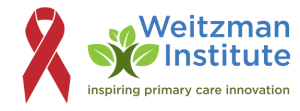
Author: Tonantzin Juarez, MS
World AIDS Day is recognized each year on December 1st as a way to remember the millions of lives lost to the disease and continue to raise awareness. For its 35th anniversary the theme chosen is “World AIDS Day 35: Remember and Commit”. This year’s emphasis of remembering and committing resonates differently when we consider the proposed funding cuts to domestic HIV funding. In this blog, we highlight important reasons as to why we advocate for advancing health equity and ending disparities experienced by people living with HIV/AIDS (PLWHA) in the United States (U.S.).
Remembering why we advocate
Advocacy efforts have guided the HIV/AIDS fight since the first cases emerged in the 1980s. It was AIDS activists that mobilized since the early days to fight for funding, access to care, and education as a way against the discrimination and stigma associated with HIV. Even though important achievements have been made thanks in part to advancements in medical research and access to treatment and prevention; we are not close to the end.
The U.S. continues to experience a HIV/AIDS epidemic. It is estimated that 1.2 million people in the U.S. have HIV, with 13 percent of these not knowing. Currently there are around 30,000 to 35,000 new infections each year. HIV does continue to impact disproportionately certain populations including racial and ethnic minorities. Specifically, today cases are rising in the South and rural areas across the U.S., with statistics for new infections showing it disproportionately impacts Black and Hispanic populations.
Advocacy helps improve HIV preventive and treatment efforts. Some of the budget cuts proposed include $220 million reduction to the CDC impacting HIV/AIDS prevention efforts and from $60 million to $28 million the Minority HIV/AIDS fund, a program critical in supporting prevention and care projects targeting disparities impacting communities of color. Experts agree that these funding cuts will strap programs’ ability to provide timely interventions for HIV care and treatment, and prevention.
Why we must commit
Access to healthcare for PLWHA is a problem. According to the National Institute of Health, of those diagnosed almost 30 percent have no health coverage, 17 percent have private insurance and the remaining 53 percent are covered by government programs such as the Ryan White HIV/AIDS Program (RWHAP), Medicaid and Medicare. Republicans are proposing a $238.5 million cut from the Ryan White HIV/AIDS program. The RWHAP is considered a safety-net for PLWHA as it provides medical care and support services to low-income HIV patients and serves more than half of those diagnosed in the U.S.
We must commit to increase equitable access and outcomes for HIV testing, prevention, treatment, and care services. This includes commitment to support access to high quality health care.
Looking Ahead
At the Weitzman Institute, we are proud of the work we do in centering the lives of people in the projects we spearhead. This year the policy team, with funding from CareQuest Institute of Oral Health, was privileged to spearhead the Understanding Barriers to Oral Care for People Living with HIV/AIDS Taskforce. Across eight meetings, we delved into a better understanding of the barriers PLWHA experience in accessing oral care, an issue our team felt imperative to address. Moving forward we recommend the importance of incorporating PLWHA voices in program planning, including prevention and implementation and in funding allocation. Listening to our Taskforce provided another perspective to what we typically see in reports, highlighting the importance of continued funding to HIV/AIDS efforts in the U.S.
Although the budget cuts we discuss are only proposals, they do require a vote from the full appropriations committee, passing the House and being negotiated with the Senate. Fear remains among advocates and PLWHA as to what even some funding cuts could look like. It’s a reminder that even if they are only proposals, advocating must not stop and why we must provide real stories and lived experience to our representatives on the positive and at times lifesaving role HIV/AIDS funding plays in PLWHA lives and communities.
If you would like to learn more about our Taskforce, please visit our website: https://www.weitzmaninstitute.org/policy/understanding-barriers-oral-care-people-living-hiv-aids/
